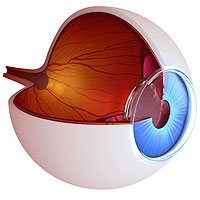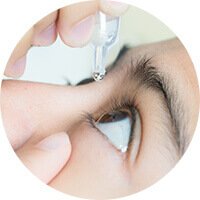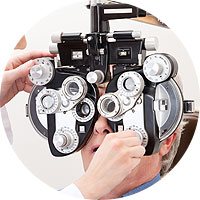
As with any operation, there is a recovery period after cataract removal surgery. However, there is little to fear — with cataract surgery, recovery is fast, easy and virtually pain-free. There are a few ways to help you speed up the process and make sure you come out the other side with maximum results.
A Quick Look At Cataract Surgery
Before we talk about the recovery period, it’s important to get an understanding of what goes into cataract surgery. The goal of the surgery is not to remove just the cataract, but to remove the entire natural lens. That may sound drastic, but the fact is, scraping the cataract out of the lens is not only impractical but impossible.
After the lens is removed, a preselected IOL is implanted in the eye. An IOL, or intraocular lens, not only fixes the cataract but can also correct for astigmatism and near or farsightedness. These lenses come with different focusing abilities and each has distinct advantages over each other. If you’d like to know more about which IOL would be best for you, come to one our locations scattered all over Pennsylvania. You can even schedule your appointment online!
The entire cataract procedure takes less than 15 minutes to finish and is done with a local anesthetic so you will be able to leave shortly after it is done.
The Rules of Recovery and How to Make the Most of Them
After the surgery, you will be required to wear a shield over the treated eye. It is for this reason that cataract surgeries are done one eye at a time — so you’ll still have some visual function after surgery. You won’t be able to drive right after the operation, but at least you won’t be bumping into things!
Try to relax and get some sleep for the first few hours after surgery and then transition into something very light, like watching TV or reading. It may take a few hours to become used to the IOL, which is totally normal.
Make sure to use the drops that will be given to you as recommended. These will not only help with redness and itchiness but will help fight infection, which your eye will be very susceptible to. You will need to be extra cautious not to get anything in your eye, especially while showering.
It is also very important to go to follow up appointments. You will usually have one within 48 hours, but it is equally as important to go to future appointments so that your progress can be tracked. Don’t be alarmed if you feel a slight burning after the surgery, but any extreme pain should be reported ASAP.
Remember, the key to a successful cataract surgery is communicating with your doctor to the best of your abilities. If you have any questions or concerns before or after the surgery, you are always encouraged to ask! Contact us to schedule your cataract surgery consultation today.

















